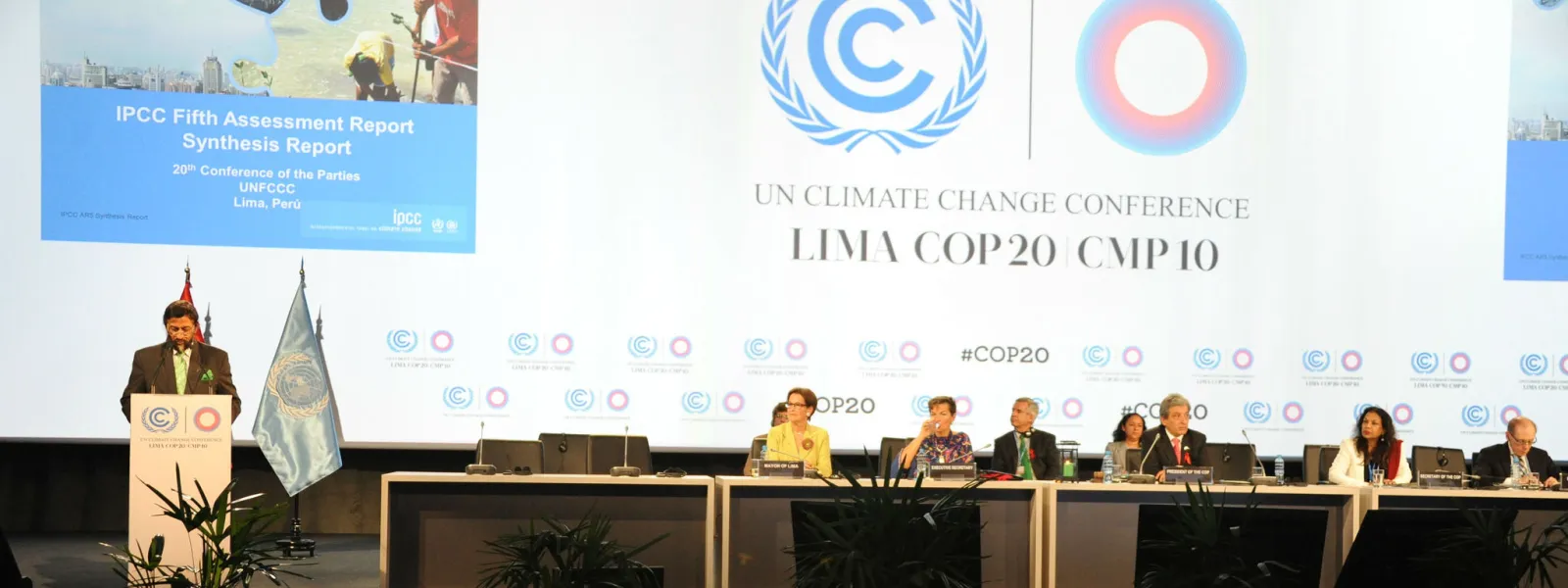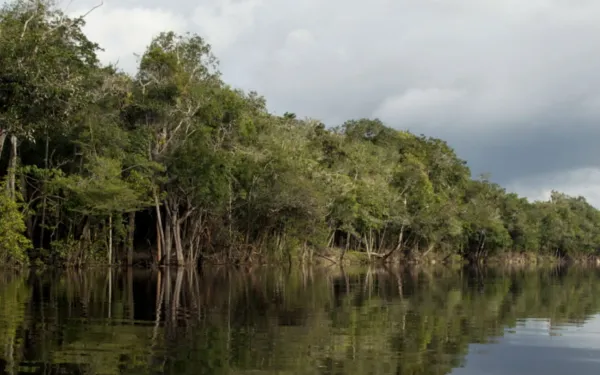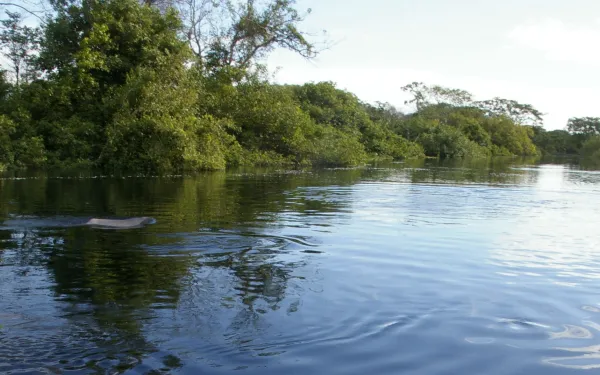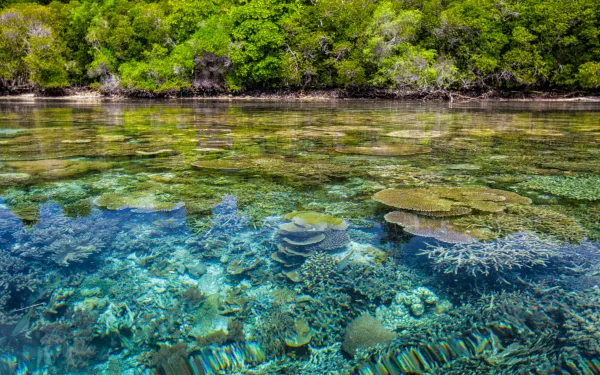
Project
Photo: UNFCCCMonitoring the UN Climate Negotiations
As changes in climate become more extreme, their affects are being hardest felt throughout developing countries. Since 1994, the United Nations Framework Convention on Climate Change has laid out actions to limit the increase of global average temperatures and confront the impacts of climate change.
The States that are Parties to the Convention meet every year in the so-called Conference of the Parties (COP) to review their commitments, the progress made in fulfilling them, and pending challenges in the global fight against the climate crisis.
At COP21 in 2015, they adopted the Paris Agreement, which seeks to strengthen the global response to the climate emergency, establishing a common framework for all countries to work on the basis of their capacities and through the presentation of Nationally Determined Contributions (NDC) that will:
- Limit the increase in global temperatures to 2°C compared to pre-industrial levels and continue efforts to limit it to 1.5°C;
- Increase the capacity of countries to adapt to the impacts of climate change; and
- Ensure that financing responds to the goal of reducing greenhouse gas emissions.
Our focus areas
THE CLIMATE CRISIS AND HUMAN RIGHTS
The climate crisis, due to its transversal character, has repercussions in various fields, geographies, contexts and people. In this regard, the Preamble to the Paris Agreement states that it is the obligation of States to "respect, promote and fulfill their respective obligations on human rights, the right to health, the rights of indigenous peoples, local communities, migrants, children, persons with disabilities and people in vulnerable situations and the right to development, as well as gender equality, the empowerment of women and intergenerational equity."
AIDA at the COP
COP25: Chile-Madrid 2019
At COP25 in Madrid, Spain, we advocated for the inclusion of the human rights perspective in various agenda items. We promoted the incorporation of broad socio-environmental safeguards in the regulation of Article 6 of the Paris Agreement, which refers to carbon markets. We closely followed the adoption of the Gender Action Plan, as well as the Santiago Network, created "to catalyze technical assistance […] in developing countries that are particularly vulnerable to the adverse affects of climate change." We also encouraged the inclusion of ambitious and measurable targets for the reduction of short-lived climate pollutants in the climate commitments of States.
Related projects

The GCF should thoroughly assess the policies and practices of the BNDES and require conditions for its accreditation
The Board of the Green Climate Fund (GCF) is considering an application for accreditation of the Brazilian National Development Bank (BNDES, Banco Nacional de Desenvolvimento Econômico e Social). The accreditation process of the BNDES is an opportunity to strengthen the Bank’s policies and procedures designed to identify, address and remediate environmental and social impacts linked to its activities and operations. With the new administration of President Jair Bolsonaro, Brazil is suffering severe setbacks in its environmental, social and climate policies and agenda. Brazilian environmental agencies are being dismantled, while renowned and effective mechanisms such as the Amazon Fund are at risk of becoming inoperative or even eliminated. In such a context, the effectiveness of the country’s environmental and social (E&S) governance and its instruments, agencies and institutions, risks being severely undermined. In order to fulfil its mandate to promote a paradigm shift towards low-emission and climate resilient development pathways within the context of sustainable developmentthe GCF should ensure that local systems and institutions are adequately equipped to deliver the sustainability outcomes intended by the Fund. The GCF should carefully assess BNDES’ existing E&S policies and procedures and ensure that approval is conditioned upon commitments and measurable steps by the Bank, with political support from the Brazilian government, to further strengthen its policies and procedures to address following shortcomings related to: Disclosure of environmental and social (E&S) information; Design of E&S policies and monitoring tools; Human rights standards and the rights of indigenous peoples and other traditional communities; Grievance mechanism; Commitments concerning climate change. Read the full statement here
Read more
International tribunal supports indigenous struggle for the Amazon
“The most beautiful jungle in the world,” wrote Alcides D’orbigny, a French biologist, of the Isiboro Sécure Indigenous Territory and National Park (known locally as Tipnis, for its Spanish initials) in the 1830s. Located between the departments of Beni and Cochabamba, Tipnis is a natural protected area that extends over 12,363 square kilometers of Bolivian Amazon. It’s one of the world’s most biodiverse sites and home to many indigenous cultures—among them the Mojeño Trinitarios, the Tsiman and the Turacaré. Despite its recognition as a National Park and Indigenous Territory, the area has for decades been threatened by a proposed highway that would effectively divide it in two. The construction would cause grave social and environmental damages, some of which have already occurred—two of three proposed stretches of road have already been built. As long as the highway has been proposed, the indigenous people of Tipnis have stood strong in their resistence, calling to protect the rainforest and the life it holds. Their efforts paid off last month in a precedent-setting legal victory for the protection of human rights and the environment. The International Rights of Nature Tribunal ruled that the Bolivian State had “violated” the rights of nature and of the indigenous people that inhabit Tipnis by encouraging the highway’s construction. The Tribunal was created in April 2010 at the People’s Conference on Climate Change and the Rights of Mother Earth, when the Universal Declaration of Rights of Mother Earth was also signed. Its role is to establish and investigate any violation of the rights outlined in the Declaration and found in the internal laws of each country. The Tribunal determines whether there was a violation and, if so, who was responsible. It emits recommendations, advisory opinions, and can determine provisional measures. Indigenous defense of the Bolivian Amazon The proposed highway through Tipnis has spurred strong indigenous resistance, and has also caused great suffering. The most painful incident happened in 2011 when more than 100 indigenous people marching on La Paz, headquarters of the Bolivian government, were brutally repressed by police. Despite the conflict, that demonstration achieved the enactment of a law that bestowed the national park the status of “intangible zone” or absolute reserve. Unfortunately, six years later, that law was null and void when the government enacted a new law through more expeditious process. Tipnis indigenous representatives denounced this and other acts before the International Rights of Nature Tribunal, which agreed to consider the case in January 2018, and then sent an international commission of observers to visit the zone and interview stakeholders. Indigenous representatives denounced that, despite being a single roadway, the project was actually presented separately, in three separate phases. Currently, only the final section remains unconstructed. Other irregularities included the awarding of the project to a Brazilian company without first completing an environmental impact assessment, and the lack of adequate consultation with affected indigenous communities. The Tribunal's sentence, issued May 15, finds the Bolivian government responsible for rights violations and calls for immediate compliance with measures including: Definitively stopping of any progress on construction; Recognizing the faculties of indigenous peoples to guarantee their control in Tipnis, including territorial autonomy and the right to prior consultation; Annuling a law that removed the status of intangible zone from Tipnis; Stopping the advance of colonization toward the central zone of the national park; Canceling plans for oil expansion on the site; Effectively applying the law to guarantee the protection of the rights of Mother Earth; and Guaranteeing indigenous peoples their fundamental role as defenders of Mother Earth. What’s next for Tipnis? Although the Tribunal’s judgment is not binding, it is a precedent established by a recognized and ethical court. For this reason, the Coordinator of Indigenous Organizations of the Amazon River Basin—an international indigenous organization—announced it would use the ruling as an instrument of proof to bring the case before the Inter-American Commission on Human Rights. The situation in Tipnis is complex. While construction of the missing section was suspended after losing credit for its execution, some actors continue to defend the road as fundamental to connecting the center and the north of the country, facilitating access to basic services and other development opportunities for the communities of Tipnis. The other side of that argument is the extensive environmental degradation to an area rich in biodiversity—acknowleding that the road would be just the beginning of activities within the protected area. I don’t believe anyone has the absolute answer. And so my analysis isn’t about making a value judgment, but about complying with the law, which resides in reason and justice. Although part of the road is constructed, there is much more to go, and so the resistance continues. The Tribunal’s decision can and should be used as an added impulse toward protecting the land. In the end, every effort is worthwhile knowing that the destruction of such a valuable natural ecosystem represents a point of no return.
Read more
In historic decree, Costa Rica legally protects its corals
On the occasion of World Oceans Day, Costa Rica issued a decree to protect its vast coral ecosystems. We congratulate the government for taking this important step and setting a legal precedent for the protection of marine environments in the region. San José, Costa Rica. The Costa Rican government issued a precedent-setting decree today that legally protects its vast coral ecosystems from harmful human activities. Following years of work on the issue, the Interamerican Association for Environmental Defense (AIDA) and Conservation International celebrate this important instrument for the conservation of these fragile and vital marine environments. “We are very pleased with this advance, promoted by the Vice Ministry of Water and Seas, which guarantees the survival of coral reefs and the various species that contribute to their conservation—species like the parrotfish, which feed on the algae that can deprive reefs of oxygen,” said Gladys Martínez, senior attorney of AIDA’s Marine Biodiversity and Coastal Protection Program. The decree provides a series of measures the government must adopt in order to preserve reef ecosystems and the species that depend on them, threatened by a combination of unsustainable use, climate change, inadequate management, and invasive species. The measures include: the creation and implementation of science-based strategies and policies to confront the effects of climate change; and the restoration of degraded reefs. The law also prohibits harmful activities like the extraction and commercialization of reefs, dumping of waste, and anchoring. “It’s our hope that the legal precedent established by this decree will be replicated in other countries of the Americas that, like Costa Rica, are bound by international treaties to safeguard their corals,” said Magie Rodríguez, AIDA attorney. “In the coming years, we will be closely monitoring the decree’s implementation.” In 2012, AIDA and Conservation International joined forces with national experts to prepare a report detailing the economic and environmental benefits of corals, urging the creation of legislation in Costa Rica to protect them. AIDA also supported the Vice Ministry in the preparation of the decree based on the organization’s experience in international law and understanding of regulations in other countries of the region. “Costa Rica is a nation privileged by the dimensions of its marine spaces and biodiversity. The coral systems are incredibly productive, but they are also threatened by human activity and climate change,” said Marco A. Quesada Alpízar, director of Conservation International - Costa Rica. “By taking action on this issue, Costa Rica has assumed responsibility for the conservation and management of its marine ecosystems, and has set an example that can be replicated in other countries.” The decree answers a years-long call for Costa Rica to comply with international obligations and protect its threatened marine ecosystems. Scientific studies have shown that a large part of the coral reefs in the country are at great risk due to human activities including land-based pollution and destructive fishing practices. Their conservation must be a priority. “This decree fills an important gap in the regulation of coral reefs in Costa Rica. It recognizes, once again, that marine resources provide people with services and well-being, which requires they be adequately protected and managed,” explained Quesada. “Costa Rica is globally recognized for its ecotourism and natural richness,” added Ana Gloria Guzmán of Conservation International’s Oceans Center. “With this decree, the nation is setting an example about the protection and management of essential marine ecosystems as a means to ensure the health of the oceans and safeguard the well-being of coastal communities that depend on the services they provide.” press contacts: Victor Quintanilla, AIDA, +521 5570522107, [email protected] Kipp Lanham, Conservation International, (202) 412-5533, [email protected] Marco Quesada, Conservation International, +506 2253-0500 ext. 139, [email protected]
Read more